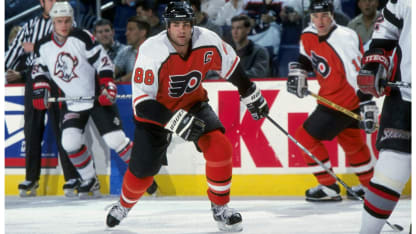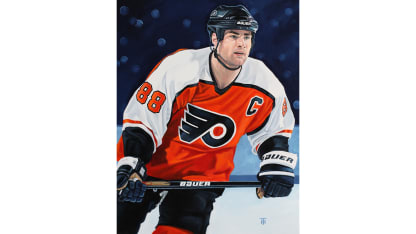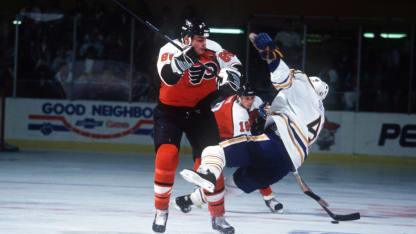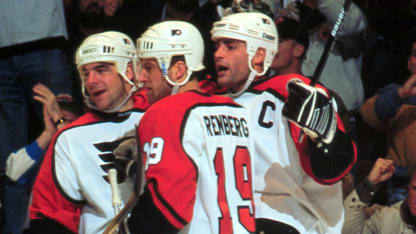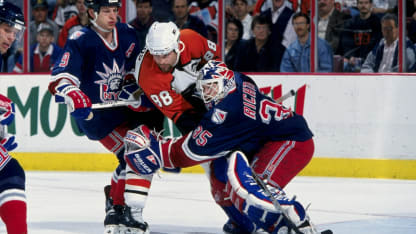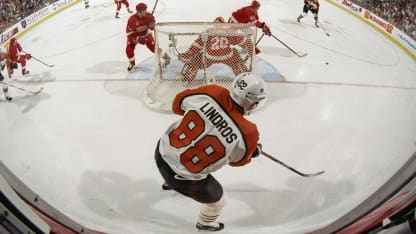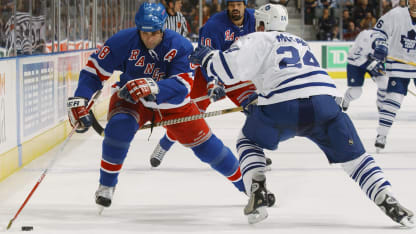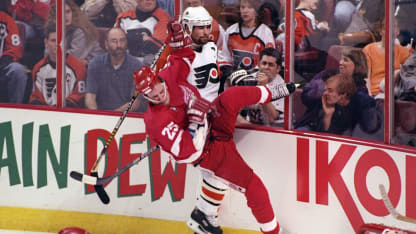Lindros laughs about it now. Of course he does.
"It's the goal of the game, pardon the pun," he says. "Just keeping things tidy. If we're going to go through a drill, if we're going to skate and have a whole bunch of regroups and go all the way up and down that ice a whole bunch of times, let's finish it off with a goal."
The Flyers traded Renberg to the Tampa Bay Lightning on Aug. 20, 1997. The Legion of Doom was done. But Lindros and LeClair were not.
Jones arrived via trade from the Colorado Avalanche on Nov. 12, 1998. He says he had one good knee and another "hanging on by a thread" at the time. But coach Roger Neilson decided to try him with Lindros and LeClair in his first game.
"I'm thinking, 'Perfect. Get me out there,'" Jones says.
The first two periods didn't go well. But Lindros kept encouraging Jones, and in the third, Jones scored on Devils goaltender Martin Brodeur for the first time in his career and had an assist in a 6-1 victory for the Flyers. After going without a point in his last seven games with the Avalanche, Jones had 10 points in his first six with the Flyers.
"All of that was on the back of Eric," Jones says. "Believe me, I was almost done in Colorado. So that's how good he was. He could make other players better as long as you thought the game well. He could carry you."
And push you.
"I hated practice," Jones says. "I was forced into doing a lot more than I wanted to because of the way that both he and John LeClair practiced. But Eric stood out above all. I was almost shocked when I got here. It wouldn't matter if he had a short night of sleep. He never shorted practice."
Because he never hated it.
"I always enjoyed practice," Lindros says. "It didn't seem like a whole lot of work. It wasn't work. It was fun."
